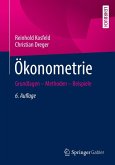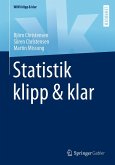After unification the public and private sector spent large amounts of money to retrain the East Germany labour force in order to ease the transition to the new market economy. Using individual longitudinal and cross sectional data, this book proposes microeconometric methods to evaluate the impact of these training programmes on the participants'situation in the labour market. The contributions concern the issue of how such evaluations could and should be performed as well as the effectiveness of the actual programmes. The empirical findings should be performed as well as the effectiveness of the actual programmes. The empirical findings suggest that the public sector sponsored training programmes were fairly ineffective for the individual participants with respect to their unemployment risk as well as other labour market indicators. In contrast, the trainig organized and paid by the enterpries caused considerable earnings growth.
Dieser Download kann aus rechtlichen Gründen nur mit Rechnungsadresse in A, B, BG, CY, CZ, D, DK, EW, E, FIN, F, GR, HR, H, IRL, I, LT, L, LR, M, NL, PL, P, R, S, SLO, SK ausgeliefert werden.









